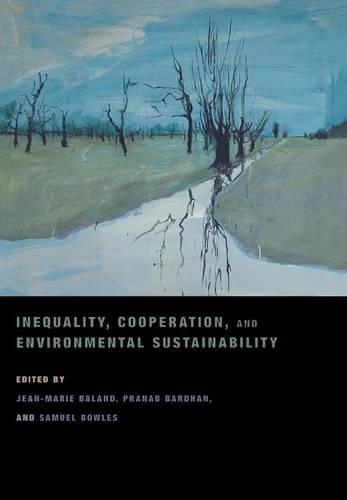
Inequality, Cooperation, and Environmental Sustainability
(Hardback)
Publishing Details
Inequality, Cooperation, and Environmental Sustainability
By (Author) Jean-Marie Baland
Edited by Pranab Bardhan
Edited by Samuel Bowles
Princeton University Press
Princeton University Press
12th February 2007
United States
Classifications
Professional and Scholarly
Non Fiction
Social theory
Political science and theory
Environmental science, engineering and technology
338.927
Physical Properties
Hardback
368
Width 152mm, Height 235mm
652g
Description
Would improving the economic, social, and political condition of the world's disadvantaged people slow--or accelerate--environmental degradation In Inequality, Cooperation, and Environmental Sustainability, leading social scientists provide answers to this difficult question, using new research on the impact of inequality on environmental sustainability. The contributors' findings suggest that inequality may exacerbate environmental problems by making it more difficult for individuals, groups, and nations to cooperate in the design and enforcement of measures to protect natural assets ranging from local commons to the global climate. But a more equal division of a given amount of income could speed the process of environmental degradation--for example, if the poor value the preservation of the environment less than the rich do, or if the consumption patterns of the poor entail proportionally greater environmental degradation than that of the rich. The contributors also find that the effect of inequality on cooperation and environmental sustainability depends critically on the economic and political institutions governing how people interact, and the technical nature of the environmental asset in question. The contributors focus on the local commons because many of the world's poorest depend on them for their livelihoods, and recent research has made great strides in showing how private incentives, group governance, and government policies might combine to protect these resources.
Reviews
"Inequality, Cooperation and Environmental Sustainability is a highly valuable book, rich in information, innovative in approach, eminently readable (if not suitable to the undergraduate student) and relevant to a wide scholarship interested in environmental commons and sustainability issues."--Luigi Pellizzoni, Sociologica
Author Bio
Jean-Marie Baland is Professor of Economics at the University of Namur in Belgium. Pranab Bardhan is Professor of Economics at the University of California, Berkeley. Samuel Bowles is Research Professor at the Santa Fe Institute and Professor of Economics at the University of Siena.
